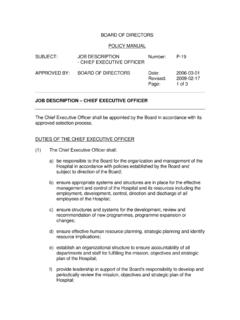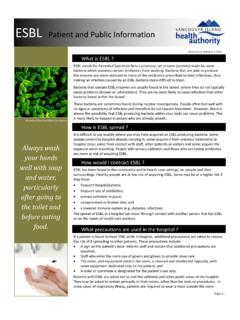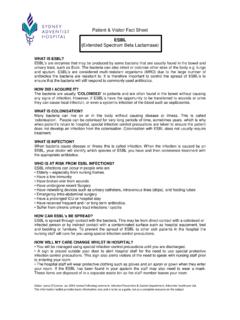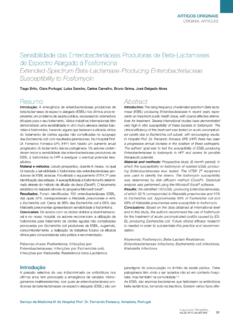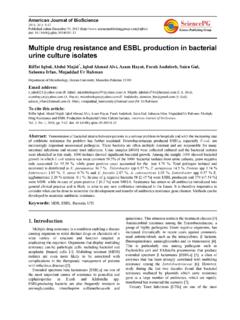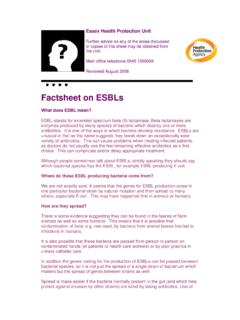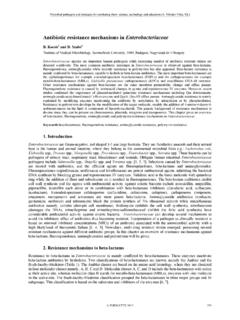Transcription of Factsheet for Patients/Family - Norfolk General …
1 SAF-1-IC-003, March 2010 Factsheet for Patients/Family What is esbl ? esbl stands for extended spectrum Beta Lactamase. ESBLs are a certain group of bacteria that produce an enzyme that breaks down antibiotics. Traditional antibiotics are not effec-tive making these types of bacteria harder to treat. What is esbl colonization? If you have ESBLs in your body and it is not causing an infection you are colonized. Although you are not sick because of this bacteria you could pass it on to someone else and make them sick. What is an esbl infection? In people with a poor immune system these bacteria can cause infection. The type of infection and type of symptoms depend on which bacteria is causing it. Some esbl bacteria cause urinary tract infections, wound infections, pneumonia, blood stream infections.
2 How do I know if I have an esbl ? At this time we do not do routine surveillance for ESBLs, however if you are being tested for other types of bacteria we may pick this up. How are ESBLs spread? When a person has esbl the bacteria from their bodies can contaminate surfaces such as toilets, bed rails, and commode chairs. When touching these items our hands become contaminated. If we touch our mouth without washing our hands we can become colonized or infected. This is why we must use additional precautions. What are additional precautions? It is very important to contain the bacteria so it does not spread to others. We do this by: 1. Isolating esbl patients and putting a Contact Precautions sign on the door. 2. Wearing a yellow long sleeved gown and gloves when providing patient care 3. Cleaning our hands before entering the room and after leaving the room.
3 What about family and visitors? family and visitors must first talk with a nurse before coming into the room. Young visitors should be closely supervised. All visitors must clean hands before entering and after leaving the room using the waterless hand rub. Any visitors providing direct care for the patient (bathing, washing, toileting, dressing changes, care for open areas) must wear a yellow long sleeved gown and gloves. If not providing direct care visitors do not need to wear gown and gloves. This includes for hand holding, feeding, pushing a wheelchair. Visitors must not visit other patients in the hospital during the same trip. To ensure we do not spread the disease. What can I do to help? 1. Remind all staff caring for you to clean their hands. 2. Wash your hands after you use the toilet, before you eat, after blowing your nose, after touching your dressing.
4 3. Talk to your nurse or doctor if you have any questions. What should I do at home? Healthy people like your family and friends are at a low risk of getting an infection from ESBLs. Wash your hands often, especially after using the bathroom and before preparing or eating food. Anyone who helps you with your personal hygiene or toileting should wash their hands after contact with you No special cleaning or laundry precautions are needed.
